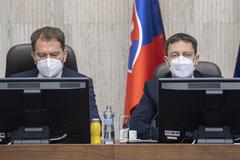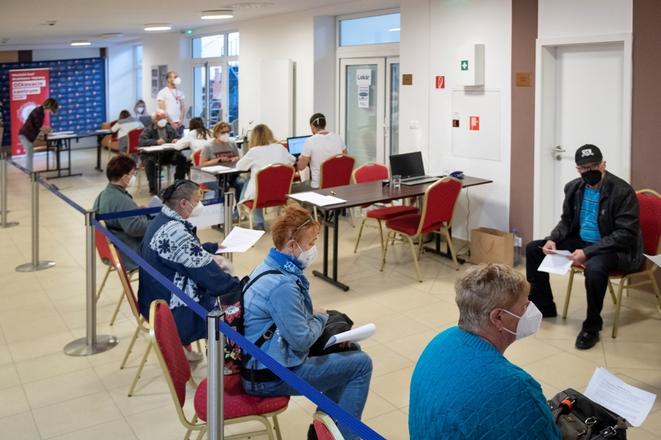The number of people rejecting vaccination against Covid has increased significantly since May.
Our paywall policy:
The Slovak Spectator has decided to make all the articles on the special measures, statistics and basic information about the coronavirus available to everyone. If you appreciate our work and would like to support good journalism, please buy our subscription. We believe this is an issue where accurate and fact-based information is important for people to cope.
While in May, 30.9 percent said they do not want to be vaccinated, in July it was 36 percent. This stems from a regular “How are You, Slovakia?” poll, carried out by the MNFORCE company, the Seesame agency and the Slovak Academy of Sciences (SAV) between July 15 and 20.
On the other hand, the public's willingness to get inoculated has remained more or less the same since March. As much as 51.7 percent of respondents said that they either have been vaccinated or want to get vaccinated, which is 3 percentage points more than in May.
“In the previous polls, there was quite a big group of respondents who were undecided on whether they wanted to be vaccinated or not,” said Robert Klobucký of the SAV’s Institute of Sociology, as quoted by the SITA newswire. “But the recent poll shows that the group of undecided is shrinking and many people are joining those that reject vaccination.”
Should vaccination be mandatory?

The poll also suggests that 29.8 percent of respondents who reject vaccination would change their opinion if it was proven that the vaccines are safe and obtain proper registration with the medicines agency. About 14.3 percent of respondents who reject vaccination would change their opinion if their general practitioner administered the vaccine, and 12.5 percent would change their mind if another pandemic wave came, the hospitals were full and many people were dying.
The majority of respondents (61.9 percent) reject the mandatory vaccination of everybody whose health condition allows it, while 31.2 percent support it. 7.6 percent of respondents could not answer the question.
Of the already vaccinated respondents, 54.9 percent said they support the mandatory vaccination of everybody whose health condition allows it.
“The opinions towards mandatory vaccination and the validity of milder epidemiological restrictions for those vaccinated divide society into two groups: the majority of those already vaccinated support both measures, while those not vaccinated are mostly against them,” said Klobucký, as quoted by SITA.



 Illustrative stock photo (source: TASR)
Illustrative stock photo (source: TASR)